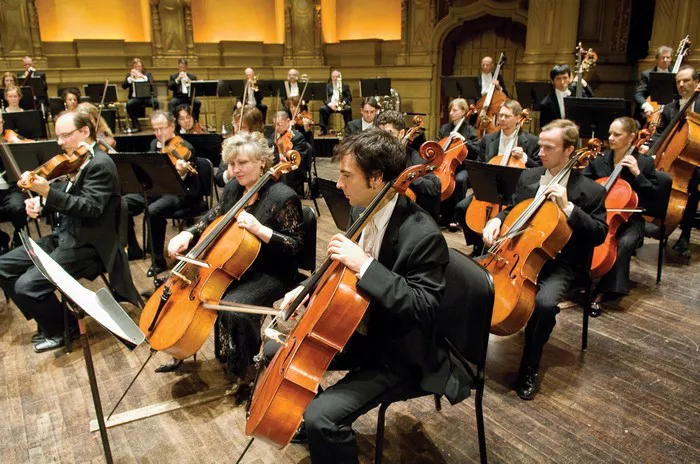Classical music has a profound and enduring legacy, with each country contributing to its tapestry in a unique way. English classical music stands out as a distinctive and influential force within this global tradition. Rooted in centuries of history, it has evolved through various periods, reflecting the cultural, social, and political changes of the time. In this comprehensive exploration, we will delve into the essence of English classical music, tracing its origins, key features, prominent composers, and its enduring impact on the world stage.
Origins and Early Influences
English classical music finds its roots in medieval and Renaissance music, where sacred and secular compositions prevailed. The Church played a significant role in the development of early English music, with choral compositions dominating the scene. Influenced by continental European styles, English composers began to create polyphonic works, introducing intricate harmonies and complex structures.
The Tudor era witnessed the flourishing of English music, particularly during the reign of Elizabeth I. Composers like Thomas Tallis and William Byrd produced exquisite choral compositions that combined intricate counterpoint with expressive melodies. This period laid the foundation for what would later be recognized as quintessentially English in classical music.
The Baroque Era and the Influence of Purcell
The Baroque era ushered in a new wave of creativity and innovation. Henry Purcell, an iconic figure in English classical music, emerged as a leading composer during this period. His compositions, such as the opera “Dido and Aeneas,” showcased a blend of emotional depth, dramatic flair, and a distinct English musical identity.
Purcell’s work was influential not only within England but also left a lasting impact on the European continent. His ability to integrate English folk elements into the formal structures of classical music set a precedent for future generations of English composers.
The Georgian Period and the Rise of Orchestral Music
The 18th century brought about significant changes in the musical landscape, marked by the expansion of orchestral music. George Frideric Handel, although of German descent, spent a considerable part of his career in England and greatly contributed to its musical scene. His compositions, including the famous “Messiah,” resonated with English audiences and are still performed worldwide.
During this period, orchestras became more prominent, and the symphony gained popularity. English composers like Ralph Vaughan Williams and Edward Elgar made significant contributions, drawing inspiration from folk tunes, landscapes, and national themes. Elgar’s “Enigma Variations” and Vaughan Williams’ “The Lark Ascending” exemplify the fusion of traditional English elements with the evolving classical forms.
The 20th Century and Beyond: Innovation and Diversity
The 20th century witnessed a surge of innovation and diversity in English classical music. Composers like Benjamin Britten and Sir Michael Tippett embraced modernist techniques while maintaining a connection to the English musical heritage. Britten’s operas, such as “Peter Grimes” and “Billy Budd,” explored complex psychological themes and showcased his mastery of orchestration.
Contemporary composers like Sir Harrison Birtwistle and Thomas Adès have continued to push the boundaries of classical music, embracing avant-garde styles and experimenting with new forms. Their works reflect the ever-changing landscape of English classical music, demonstrating a commitment to both tradition and evolution.
Key Features of English Classical Music
Melodic Expressiveness: English classical music is often characterized by its melodic expressiveness, with composers frequently drawing inspiration from folk tunes and national melodies.
Choral Tradition: The choral tradition has remained a cornerstone of English classical music, with composers producing intricate and harmonically rich choral works.
Incorporation of Folk Elements: Many English composers have incorporated folk elements into their compositions, creating a unique blend of classical and traditional music.
Connection to Nature and Landscape: The English countryside and its landscapes have served as a profound source of inspiration, influencing composers to evoke pastoral themes in their works.
Prominent Composers
Henry Purcell (1659–1695): Renowned for his Baroque compositions, Purcell’s legacy includes operas, choral works, and instrumental pieces that showcase emotional depth and dramatic flair.
Edward Elgar (1857–1934): A pivotal figure in the late Romantic period, Elgar’s compositions, such as the “Enigma Variations” and the “Pomp and Circumstance Marches,” capture the spirit of the time.
Ralph Vaughan Williams (1872–1958): Known for his pastoral and symphonic works, Vaughan Williams drew inspiration from English folk music, creating compositions that reflect the nation’s identity.
Benjamin Britten (1913–1976): A leading figure in 20th-century English music, Britten’s operas, chamber music, and vocal works exhibit a modernist approach while maintaining accessibility and emotional depth.
Conclusion
English classical music stands as a testament to the rich cultural heritage and artistic innovation of the nation. From the intricate polyphony of the Renaissance to the modernist experiments of the 20th century, English composers have continually shaped and expanded the boundaries of classical music. As we continue to appreciate and explore this musical legacy, it becomes evident that the essence of English classical music lies in its ability to evolve while remaining rooted in the traditions that have defined it for centuries.

